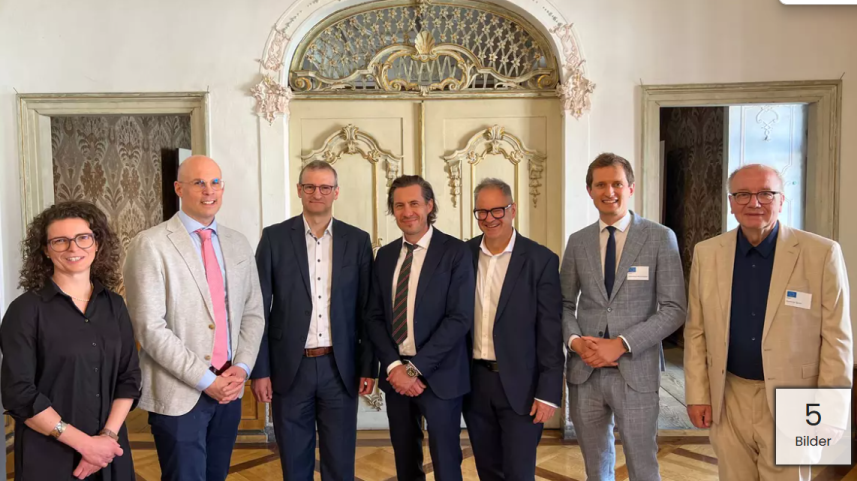Interreg-supported Tele Alpine Project aims to improve survival rates of heart attack patients along the German-Austrian border and to inspire similar initiatives across the EU
Interreg-supported project gets to the heart of the matter
- 02 June 2025

The "Tele Alpine Project", supported by the Interreg Bavaria-Austria programme aims to provide improved follow-up care to heart attack patients on both sides of the Austrian-German border.
When the heart stops, every second counts. For a long time, being on the other side of the border represented a significant disadvantage when it came to accessing fast and professional care for heart attack patients. This largely changed in 2012 when the Füssen Heart Centre was created. Since then, patients on both sides of the Bavarian-Austrian border have been able to access the best possible care there in the event of an emergency.
However, the issue of long-term secondary preventive care for heart attack patients represented the missing link in medical care in Austria and Bavaria. On 14 May 2025, the new "Tele Alpine Project", an Operation of Strategic importance, was launched in the Emperor's Hall of St. Mang Monastery in Füssen. Behind this is a cross-border research project that focuses on the digital follow-up of heart attack patients. The aim is to improve so-called secondary prevention – in other words, to significantly reduce the risk of a further heart attack. "This so-called secondary prevention plays a decisive role", explains Martin Hinterseer, Medical Director of the Füssen Clinic. The Tele Alpine Project is planned to run for three years. Digital and telemedical care of patients is planned – across national borders. Specialists from several regions are working on this, from the University Hospital Augsburg, the Medical University of Innsbruck and the Heart Center Füssen-Außerfern.
Expectations are high. Patients on both sides of the border should benefit from this cooperation – both in acute care and in long-term care. "The aim is to support patients after a heart attack in controlling important risk factors such as blood lipid levels, blood pressure or blood sugar in the long term – regardless of location and across national borders," stated Axel Bauer, Director of the University Hospital for Cardiology in Innsbruck.
'The project relies on the sharing of knowledge and digital services between the clinics in Füssen, Innsbruck and Augsburg. The aim is to develop a showcase model for cross-border medical care – a model that could also work in other border regions. It is an important project that is being implemented here, because despite all the advances in medicine, heart attacks remain one of the most common causes of death – even among us. Projects like Tele Alpine could help change that'.

